To serve better thy country
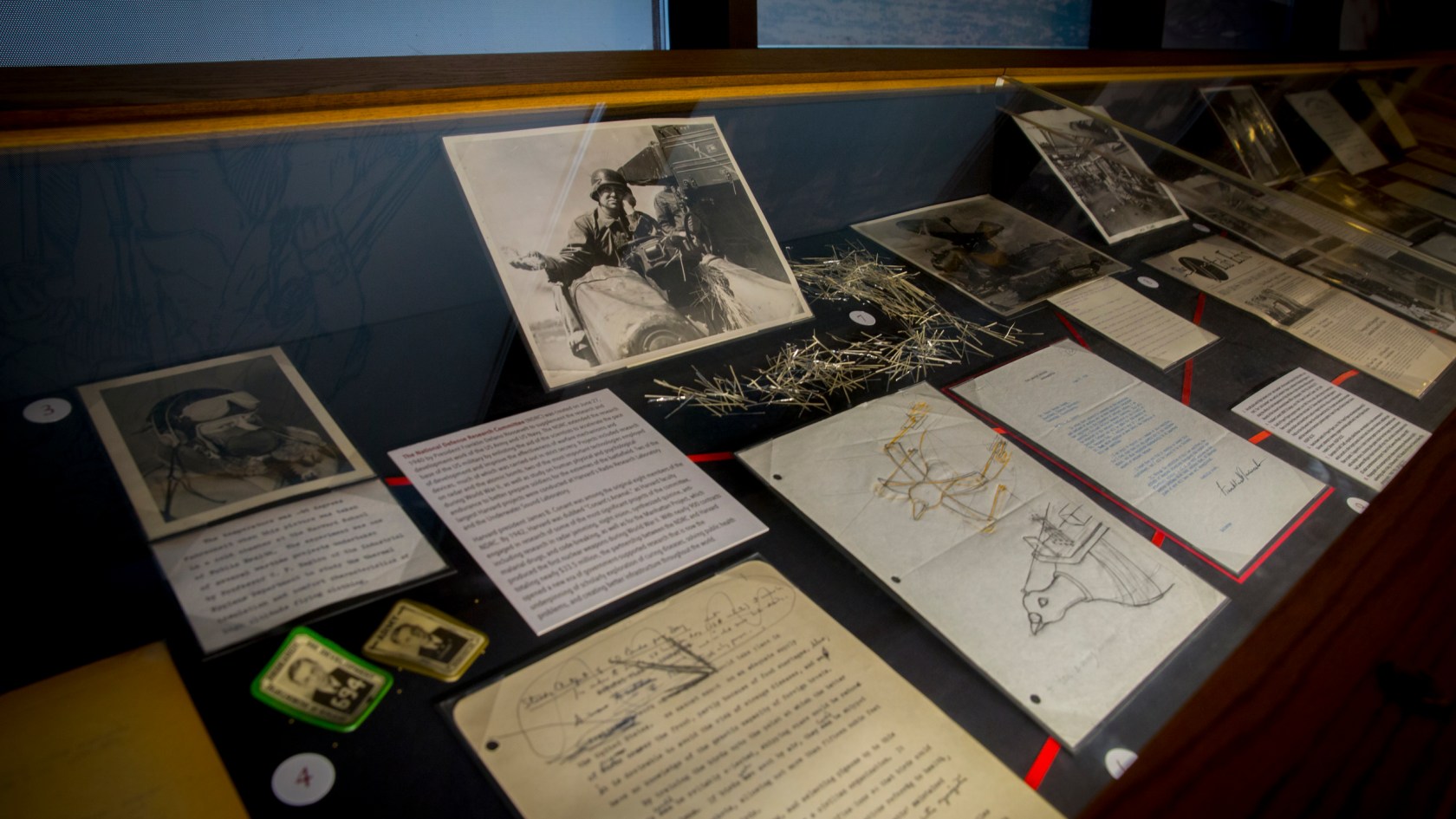
“To serve better thy country: four centuries of Harvard and the Military” on display at Pusey Library at Harvard University.
Rose Lincoln/Harvard Staff Photographer
University archives depict Harvard military history
This story was originally published in 2017 when an exhibit at Pusey Library detailed the history of Harvard and the military, from the founding of the University through the 21st century.
For almost 250 years, the U.S. military and Harvard University have shared a deeply interwoven history. From the thousands of students, faculty, staff, and alumni who have served in uniform to others who have shaped American diplomacy or scientific research, members of the Harvard community have long dedicated themselves in service to the nation’s military.
Members of the Harvard community also served in militias and local military units during the almost 150 years before the nation’s founding.
A Harvard University Archives exhibition currently on display at Pusey Library demonstrates the scope of this relationship. The exhibit, called “To Better Serve Thy Country: Four Centuries of Harvard and the Military,” includes correspondence from military leaders, uniforms and personal collections of soldiers, and presentations on nuclear research and other archival materials.
Beginning with the founding of the University and the nation in the colonial period and concluding in the 21st century, the items presented in this exhibit illustrate the evolving ties between Harvard and the military in several key periods.
The exhibit is free and open to the public.
To Better Serve Thy Country: Four Centuries of Harvard and the MilitaryA 2017 exhibit at Pusey Library
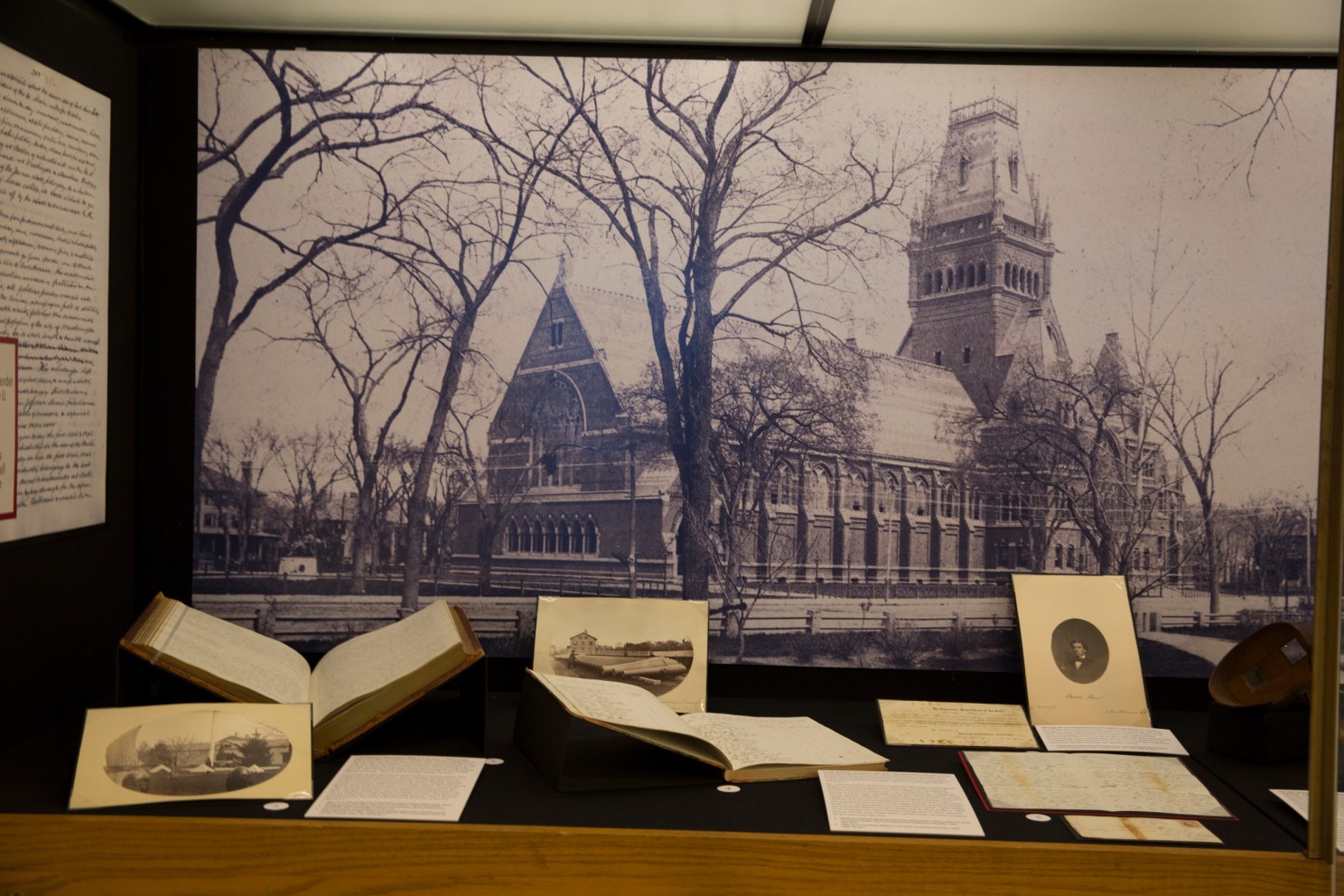
Photographs and letters from Harvard students, alumni, and administrators are arrayed in front of an 1888 photograph of Memorial Hall. Among the items on display are photographs of cannons and ammunition held at the Cambridge Arsenal, which Harvard students rushed to protect when the Civil War began.
Rose Lincoln/Harvard University
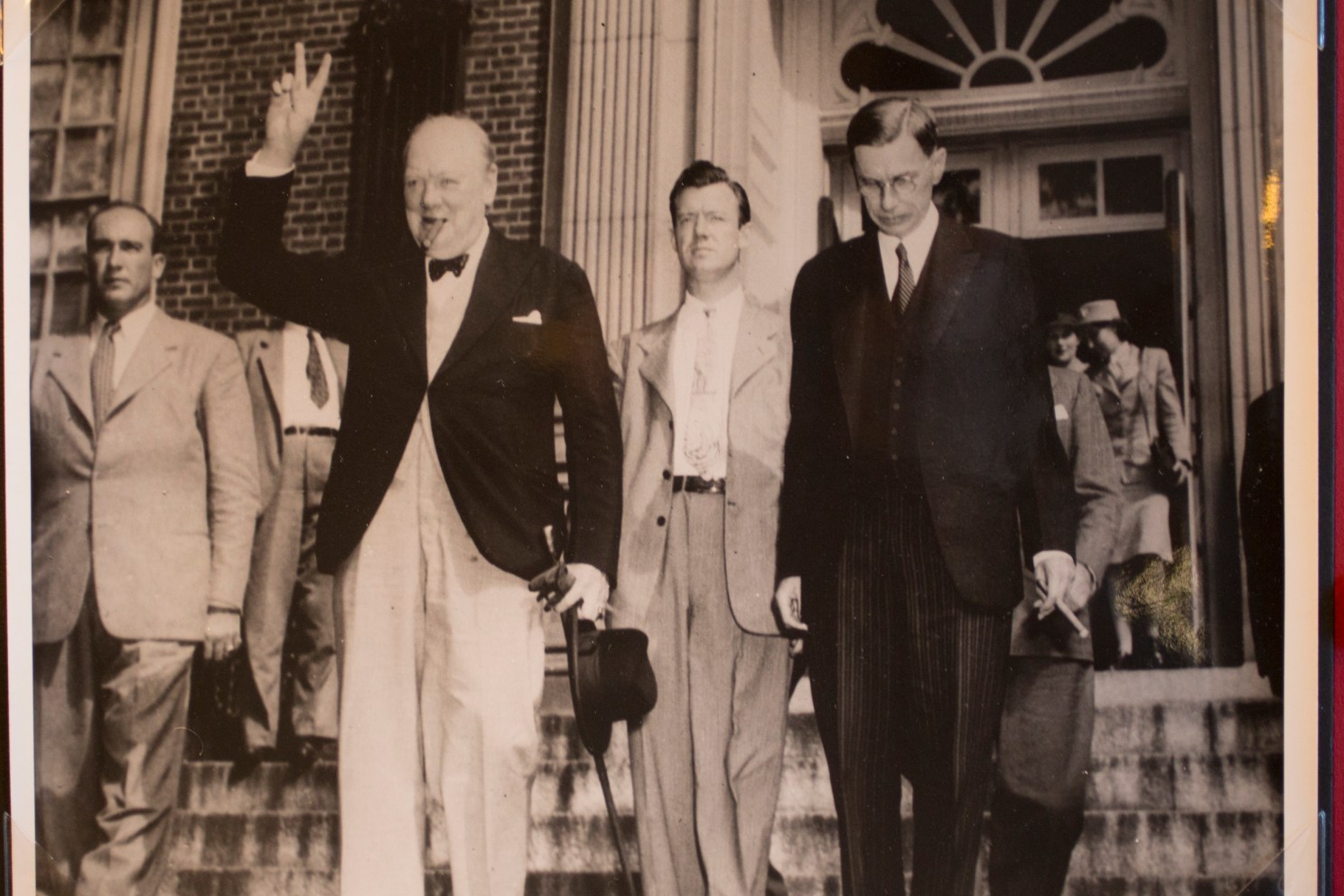
British Prime Minister Winston Churchill spoke to 6,000 uniformed soldiers from the steps of Memorial Church on Sept. 6, 1943, the same day on which he received an honorary degree from Harvard. “I earnestly trust that, when you find yourself alongside our sailors and soldiers in 1943 or 1944, you will feel that we are your working brothers in arms,” he told the crowd.
Rose Lincoln/Harvard University
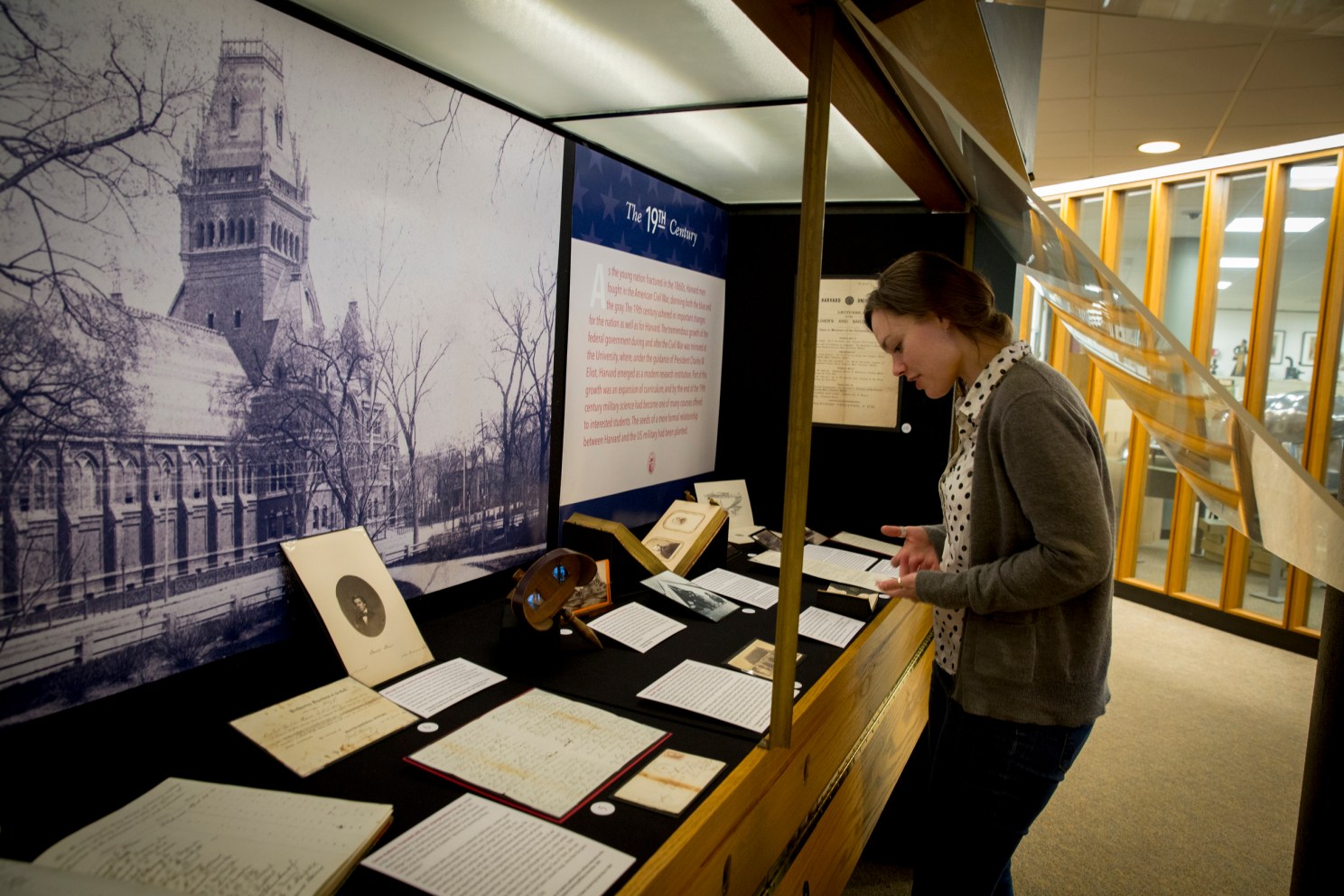
Emily Atkins, a Survey Archivist at Harvard looks over some of the memorabilia at, “To serve better thy country: four centuries of Harvard and the Military”, a display at Pusey Library at Harvard University.
Rose Lincoln/Harvard University
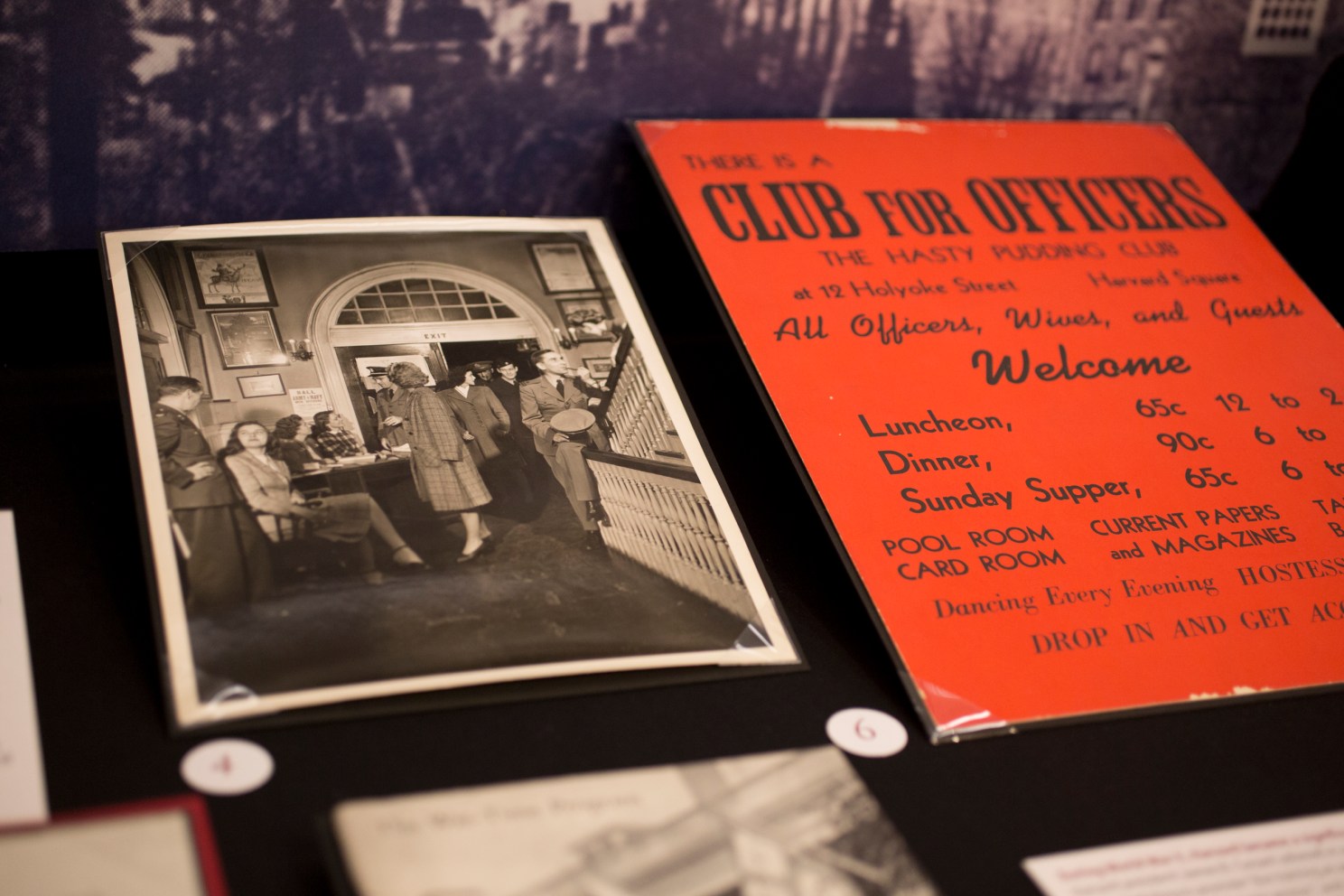
Soldiers and civilians socialize in the Hasty Pudding clubhouse at 12 Holyoke St., circa 1944-1945. The club had been opened to officers stationed at Harvard and to their wives.
Rose Lincoln/Harvard University
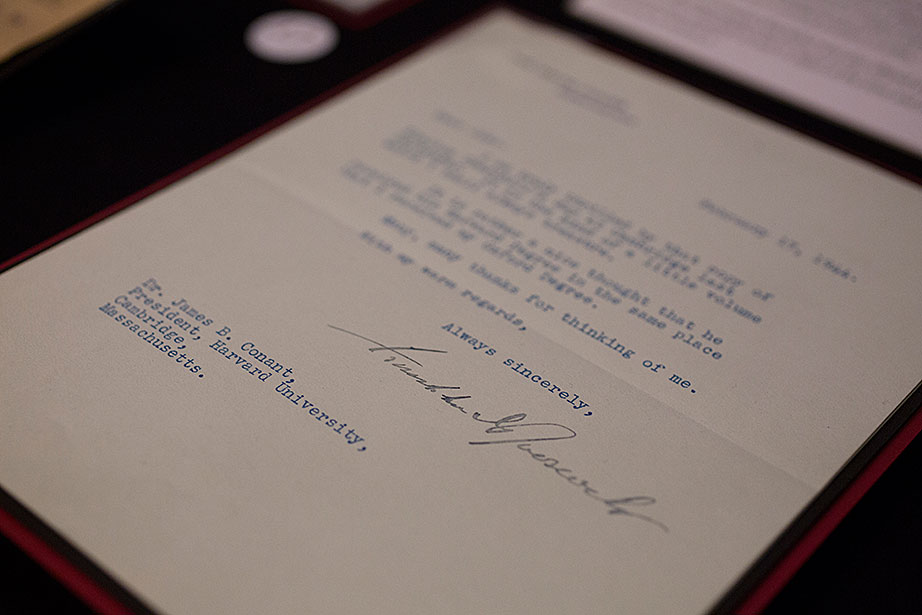
A letter from Franklin D. Roosevelt to Harvard President James B. Conant dated Feb. 7, 1944. Roosevelt wrote to express his pleasure that British Prime Minister Winton Churchill had been award an honorary degree from Harvard in 1943.
Rose Lincoln/Harvard University




